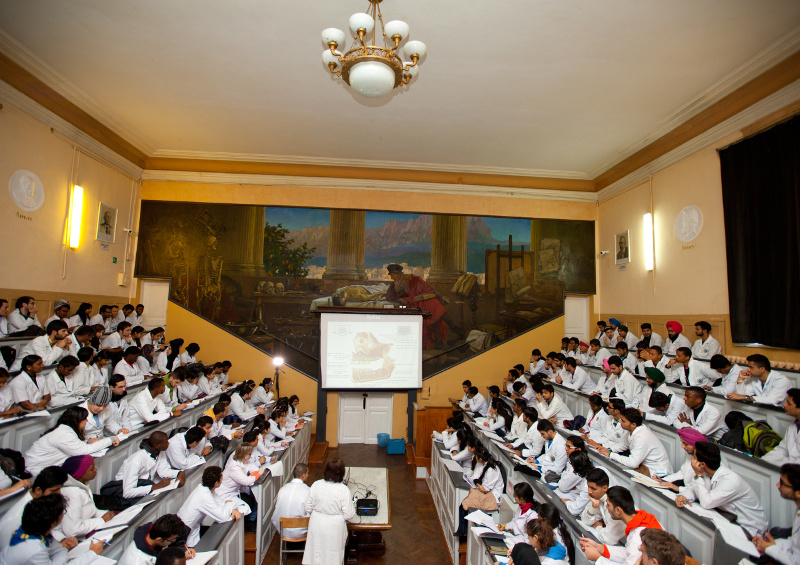Medical Faculty

The Medical course at the Kharkiv National Medical University (KNMU) takes six years and leads to MD (MBBS/ General Medicine). In the under graduate program, during 6years of study the students learn different subjects from fundamental subjects disciplines to special medical subjects.
This is an exciting time in medicine as we look forward to developing new avenues in health care excellence. The practice of medicine remains one of the most requested of all professions and we believe that the Kharkiv National Medical University (KNMU) is a perfect place to acquire medical knowledge and gain the degree. We believe students are enrolling in Kharkiv National Medical University (KNMU) for the right reasons – they want to provide care for people and they feel that as physicians they can make a difference in their communities. For that reason, we have great faith that there is a bright future for health care.
The Kharkiv National Medical University (KNMU) is known nationally for its many innovative teaching, clinical training and research programs. Our award-winning faculty members constantly strive for innovation and excellence in the classroom, the laboratory and the clinic. Because the class size is relatively small, our faculty members get to know each student. It is one thing to say the University has terrific people and programs and another to prove it.
Admission to the medical faculty takes place after signing a contract. Foreigners study in group of seven eight students. The second year students attend their clinical studies where they can gain experience in nursing the patients. Clinical subjects are taught beginning from the third year of study. Students can study any topic of interest and to rise their of knowledge in the departments. All six years of the program are important and all must be passed successfully before students are permitted to graduate.
The state final examinations on all the disciplines according to the syllabus are held within one system through 2 stages:
- Testing practical proficiency of final-year students (when exams on clinical disciplines are taken, testing takes place at the patient’s bed)
- Testing scientific/theoretical proficiency.
The successful students who will complete study of five years, then on graduation work for another year under probation in order to gain general registration. There is a wide range of specialization available in the public and private sectors, involving research, academic medicine, public health, clinical medicine and other areas. Specialties include Cardiology, Oncology, Pediatrics, Psychological Medicine, Surgery, Pathology, Public Health, General Practice and many others. Most doctors complete postgraduate training in their chosen specialty.
Here is the course description with detailed MBBS syllabus
For 6 years of training 13,474 hours out of them:
- Humanitarian subjects — 1,576 hours
- Social-economic subjects — 432 hours
- Fundamental /general scientific/ subjects — 2,180 hours
- Professionally oriented subjects — 6,098 hours
- Elective courses — 324 hours
- Practical training — 972 hours
- Subinternship /in the 6-th year — 1,892 hours








